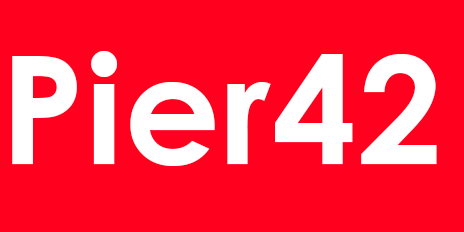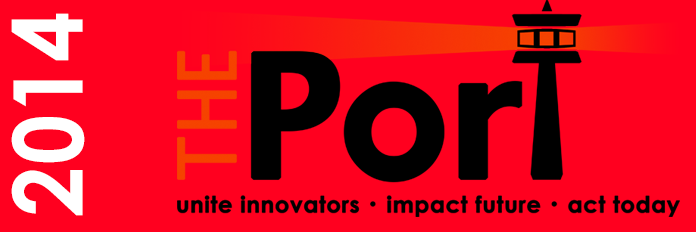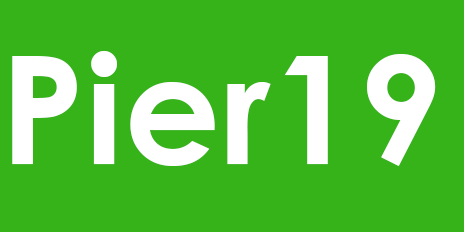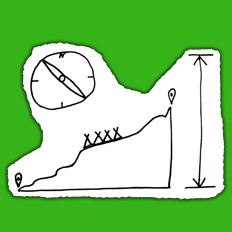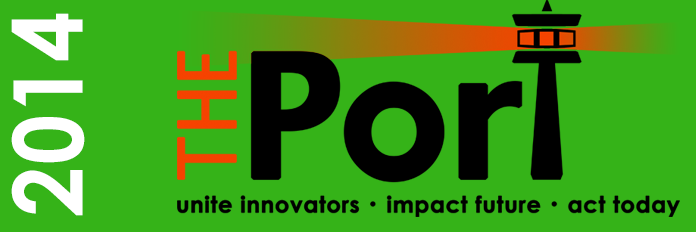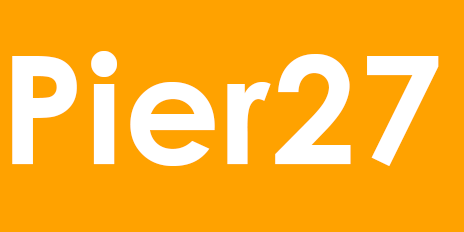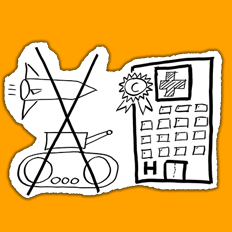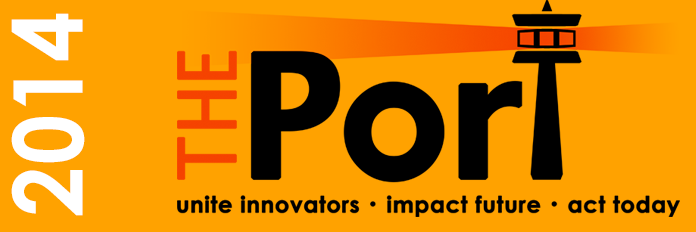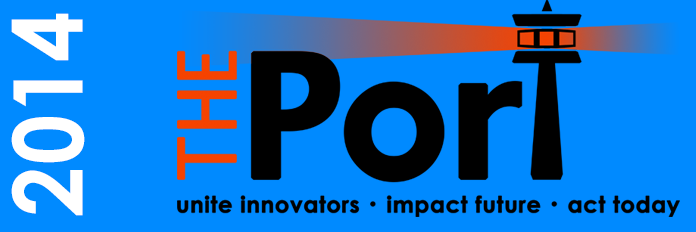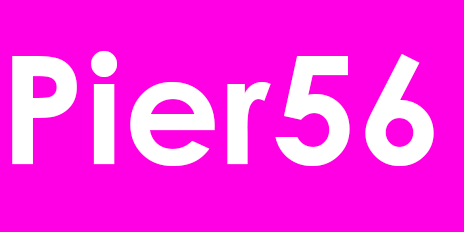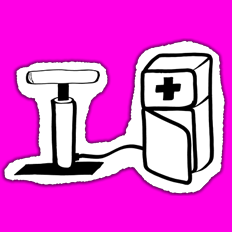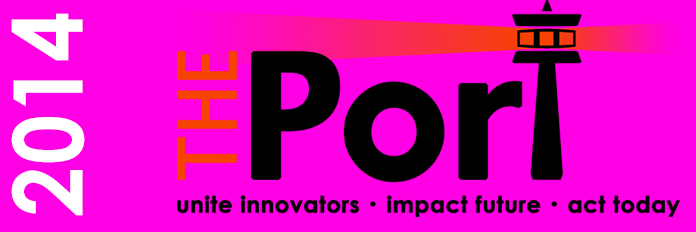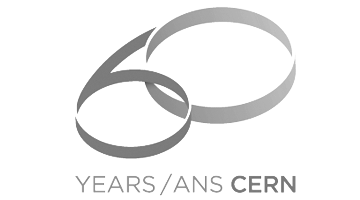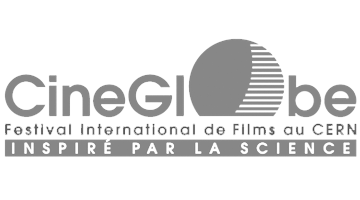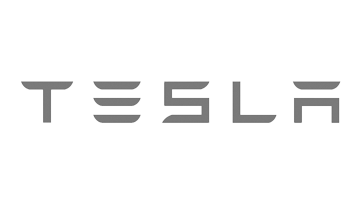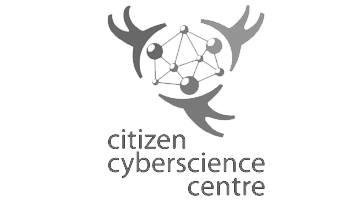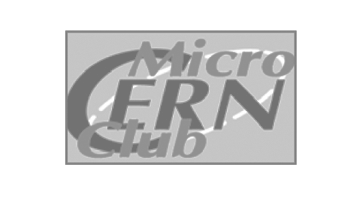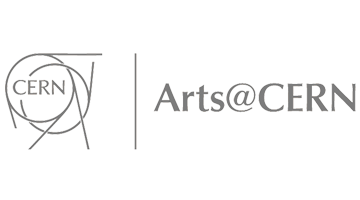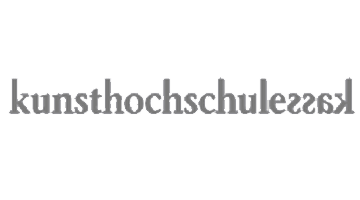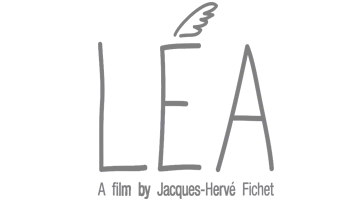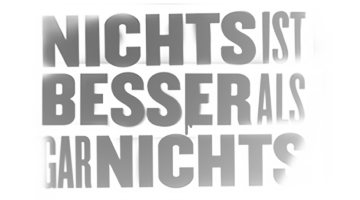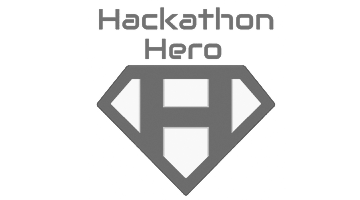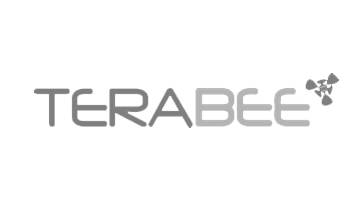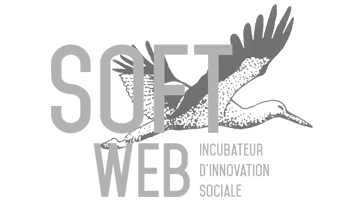THE Port 2014
31.10.-02.11.2014 – IdeaSquare, CERN, Geneva, Switzerland
Topics 2014
Our topics selected for the 2014 edition are inspired by friends and collegues working at Red Cross, UNOSAT/UNITAR, Skyguide and United Nations.
Results of the last year’s edition you find summarised in our annual report.
-
Pier42
Blindstore provides an online lookup service which returns the correct answer without ever knowing what the question was. The protocol guarantees that the server can’t know which record the client requested. The client still only receives the record they requested.
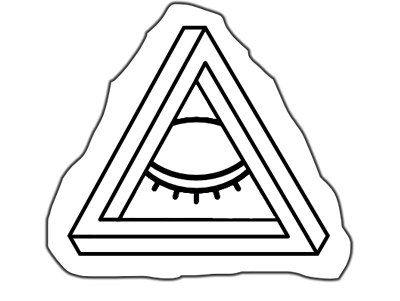
A private information retrieval data store
-
Pier19
The determination of safe, accessible, and usable locations for refugee camps is paramount to the success of the camp. While viable locations can be investigated with field surveys by persons in the field or with the rather costly use of satellite technology, it is vital to have a precise understanding of the elevation of the terrain to ensure the camps will be free from natural dangers such as flooding.
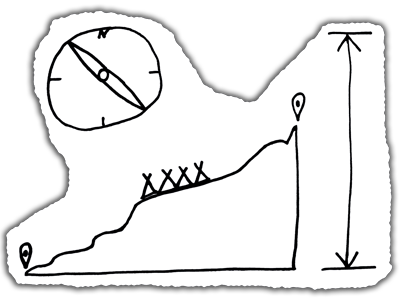
Terrain elevation determination for refugee camps
-
Pier27
Mis-identification of possible military targets is a major source of collateral damage and leaves no safe place for escapees to go. Hospitals and other humanitarian institutions could benefit vastly from being safely tagged as such by a certificate that can not be copied or mis-placed and therefore be safer from bombing if it can be trusted more.

The conflict zone humanitarian demarcation certificate
-
Pier83
One of the most sensitive methods to locate land mines uses special trained search dogs. A few molecules of the explosive itself can be detected by a trained dog’s nose, which makes this method independent of the mine housing many other measurements are based on. A tracking and steering systems can help to improve the efficiency and thoroughness of the search. The same concept can be also adapted to rescue searches.
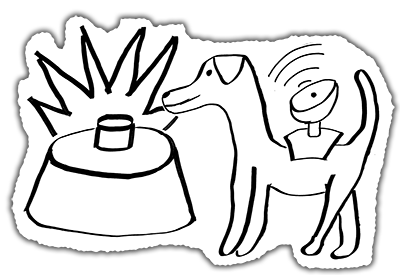
Tracking and demarcation system for dogs in rescue and de-mining operations
-
Pier56
For many humanitarian and social projects, fridges are necessary – e.g. to cool medication or vaccinations. Locally organizing or transporting fridges to refugee camps is expensive due to their size and weight – loading them with other goods is not really practical and time-consuming. An inflatable fridge with a compact cooling unit using innovative insulation technology could improve the flexibility and availability of fridges in field operations.
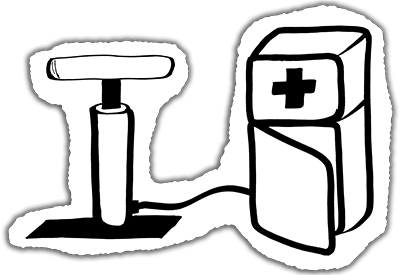
The 10$ inflatable fridge for field operations
-
PierX1
We produced a cheap and simple detector for cosmic rays, based on the Raspberry Pi computer platform. The detector is based on a plastic scintillator and Silicon photomultiplier tube combination, connected to a custom PCB combining all the necessary electronics functions (power supply, input stage, amplification, pulse shaping, trigger and an analogue digital converter), with a software stack capable of storing and analysing the collected data. We came up with a detector design which makes the collection, measurement and analysis of cosmic rays accessible and affordable to students, educators and science enthusiasts worldwide.
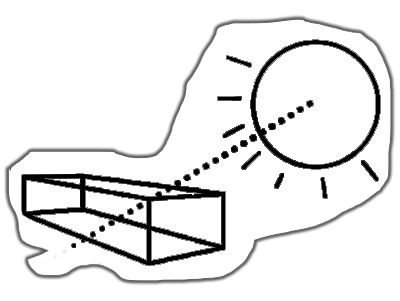
Portable cosmic ray detector with grid analysis
Teams 2014
Six inter-disciplinary teams with about 10 members each had 6 weeks of preparation time with video-conference meetings and a 60 hour final hackathon to build working prototypes and tangible solutions for real-life humanitarian problems.
Teams
We foster innovation and creativity by ‘colliding’ diverse approaches and ideas in inter-disciplinary teams. Our aim is to balance the teams in expertise, age, culture and gender to reach optimal diversity and the full potential to look at tasks from multiple perspectives. We would like to thank Geneviève Guinot and Fabiola Gianotti for their support to reach 33% female participation.
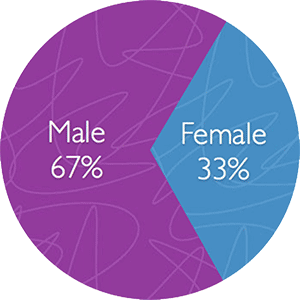
Teams
We foster innovation and creativity by ‘colliding’ diverse approaches and ideas in inter-disciplinary teams. Our aim is to balance the teams in expertise, age, culture and gender to reach optimal diversity and the full potential to look at tasks from multiple perspectives. We would like to thank Geneviève Guinot and Fabiola Gianotti for their support to reach 33% female participation.

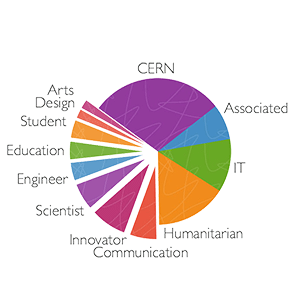
Participants
About 30% of the participants are currently working at CERN and an additional 8% are associated by having previously worked or studied at CERN. 12% are working in IT sector and 16% at humanitarian organisations. The remaining third are working in Communication, Innovation, Science, Engeneering, Education, Design, Arts or are still students.
Participants
About 30% of the participants are currently working at CERN and an additional 8% are associated by having previously worked or studied at CERN. 12% are working in IT sector and 16% at humanitarian organisations. The remaining third are working in Communication, Innovation, Science, Engeneering, Education, Design, Arts or are still students.

Experience
Most of our participants have at least three years of professional work experience after their academic education. About a quarter are in the 2nd half of their PhD or have been selected because they demonstrated extraordinary creative or innovative capabilities. The age span reaches from 17 years to 46 years with external local mentors not included.
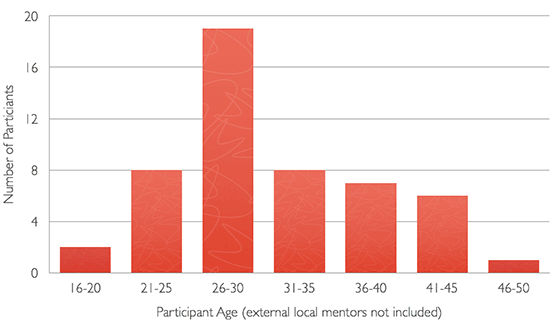
Experience
Most of our participants have at least three years of professional work experience after their academic education. About a quarter are in the 2nd half of their PhD or have been selected because they demonstrated extraordinary creative or innovative capabilities. The age span reaches from 17 years to 46 years with external local mentors not included.

Global coach mechanics: Ruben Fernandez Morcillo – Global coach electronics: Sylvain Kaufmann
Team: Blindstore
Coaches: Alejandro Avilés and Bilge Demirkoz
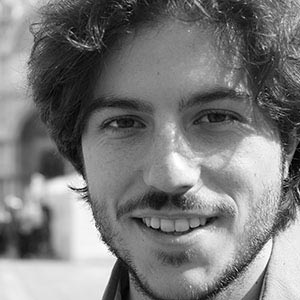
Andrea Ieri (IT)
Currently a storage engineer at CERN, Andrea is a security minded professional at heart. After having pursued his interests in Italian, Swedish and Scottish universities, he is now working on storage technologies that make life easier for both users and system administrators. In the past he has worked on secure authentication schemes, key management software and account lifecycle projects. He is an advocate of open source software and privacy enhancing techniques.
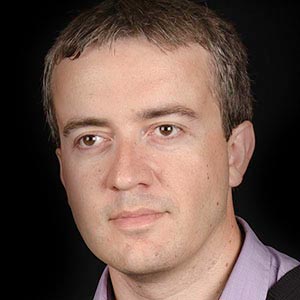
Christophe Sahut (FR)
Christophe is Corporate Infrastructure Architect at SGS (Société Générale de Surveillance), the world’s leading inspection, verification, testing and certification company. Based in Geneva, he’s in charge of several global IT infrastructure projects related to cloud architectures and security. He has a strong technical background on security and opensource technologies as a trainer and consultant. Technology agnostic, Christophe kept from his trainer past the enthusiasm to share his knowledge and experience.
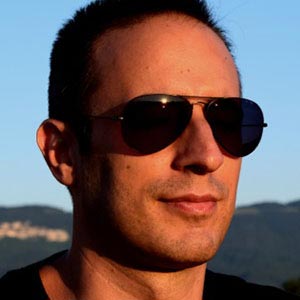
Daniele Raffo (IT)
Formerly a CERN civil servant, Daniele holds a Ph.D. in Computer Science focusing on the security of wireless networks. He has experience in the fields of systems, networking, security, and Java programming. Partisan of Linux and Free Software in general, he is the author of the official Handbook for Enigmail, the OpenPGP plugin for Mozilla, as well as a reviewer for other technical books. His Twitter account is @Science__Dan from where he tweets about science and hacking.
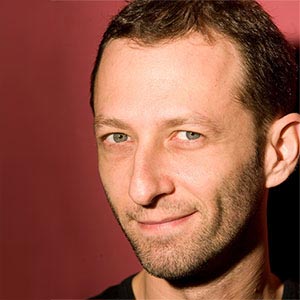
Ferdinando Buscema (IT)
Ferdinando is a Magic Experience Designer, a corporate specialist designing “magical experiences” for organizational growth. With a background in mechanical engineering and humanistic psychology, Ferdinando has been chosen as a partner by multinational companies, to create high-value edutainment events. Ferdinando is also an international performer, credited at the Magic Castle in Hollywood, the most exclusive stage for magical entertainment. He serves as an Advisor the philanthropic foundation Fetzer Institute. His Twitter account is @ferdinando_MED.
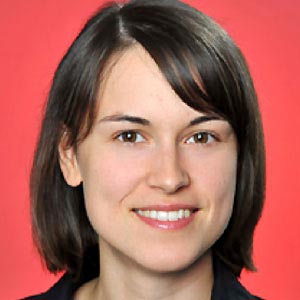
Gretta Hohl (RO)
Gretta was born in Romania, as part of the Hungarian German minority. She studied Computer Science in Berlin Germany focusing on robotics and artificial intelligence. During her studies she worked several years as student researcher in the artificial intelligence group at the Free University Berlin. She developed embedded systems and co-lead the humanoid robots research project FUmanoids. Since three years she is developing software at the SAP Innovation Center Potsdam.
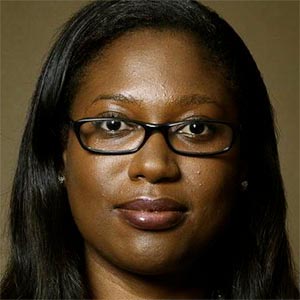
Linga Kalinde Mangachi (MW)
Linga Kalinde Mangachi is an Executive MBA in Management of Technology candidate at EPFL. Following undergraduate studies in the United States and an MSc. in Management of Intellectual Property at Queen Mary in London she has pursued a career in Intellectual Property, Policy and Regulatory Affairs. Linga has worked in various roles in international organizations, multinational companies and in start-ups.
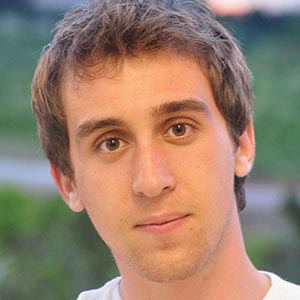
Yigit Demirag (TR)
Yigit Demirag is currently in his senior year of undergraduate studies at Department of Electrical and Electronics Engineering at Bilkent University, in Turkey. As an undergraduate, he developed an unsupervised machine learning algorithm requiring advanced signal processing for THz-TDS system in Nanotechnology Research Center, which resulted in a patent preparation. He also worked at BiLCEM supercomputers which doubles the world record in computational electromagnetic to improve load-balancing and reduce memory usage with openMP. During his stay at CERN, he is working on vectorization and SIMD optimization of Random Number Generators on Intel’s Haswell Architecture. His twitter account is @yigitdemirag.
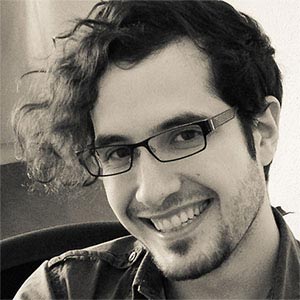
Alejandro Avilés (ES)
Alejandro Avilés (@OmeGak) is a computer scientist currently working as an all-terrain web developer at CERN for the Indico project. Always with user experience design in mind, his weapons of choice are Python, Javascript and CSS. He previously did research on swarm intelligence for route discovery in case of natural disaster at Tokyo University of Science. Being himself a hacktivism enthusiast, Alejandro recently helped found Blindstore in order to provide better tools to protect privacy.
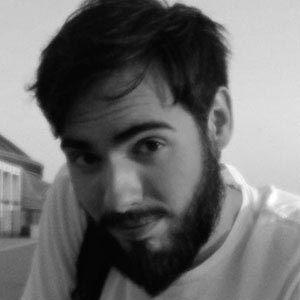
Anastasis Andronidis (GR)
Anastasis Andronidis is a computer scientist, graduated with excellence from Aristotle University of Greece. After having a 4 years job in a GRID data center in Greece, where he was responsible for databases and distributed frameworks and applications, he start working at CERN as a Technical Student on OpenStack solutions and Linux administrating. Having experience with big infrastructures and parallelization software, he also worked on Puppet as a OpenLab summer student at CERN in 2012, on Apache Hama as a Google’s Summer of Code intern, and now he is a PMC member of the Apache Hama project.
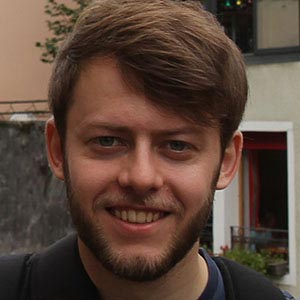
Benjamin Lipp (DE)
Benjamin is currently in the final semester of his undergraduate studies in physics at Karlsruhe Institute of Technology in Germany. He works as Linux system administrator in two non-profit associations and is passionate about open source software, security and cryptography. Besides that, he loves running and photography. This year, he was a CERN openlab summer student working on OpenStack. Benjamin has been part of the team that founded Blindstore.
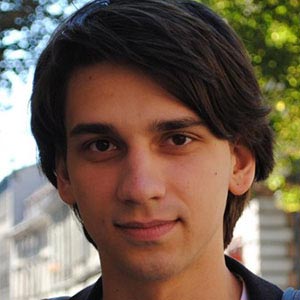
Bogdan Kulynych (UA)
Bogdan is currently in the final year of his undergraduate studies in Applied Mathematics at Kyiv-Mohyla Academy in Ukraine. He also studied at Jagiellonian University in Poland as an Erasmus Mundus student. Bogdan is interested in Machine Learning, Data Analysis, and Cryptography. This year, he was a CERN openlab summer student working on the Invenio project. Concerned over the issues of privacy on the Internet, he was the one who came up with the idea of Blindstore, and lead the technical efforts behind the project.
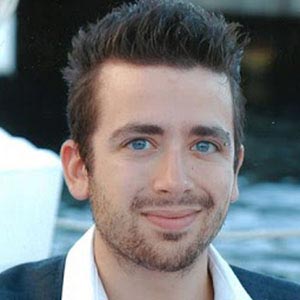
Tommaso Papini (IT)
Tommaso was born in Figline Valdarno (Florence, Italy) in 1990. He started his bachelor degree in Computer Science (2009) at the University of Florence and graduated in December 2012 with a score of 110/100 cum laude. During the second year of his bachelor degree he also studied at the Polytechnic University of Madrid as Erasmus student. Tomasso enrolled then for a master degree in Computer Science (2012) at the University of Florence and is still studying to graduate. In October 2013 he started his 1 year Technical Student programme at CERN, working as a web developer in the Indico Team.
Team: CaSa
Coaches: Michael Kagan and Bruno Silva De Sousa
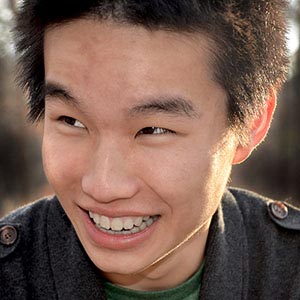
Chen Ye (CN)
Chen is a second-year Biology/Computer Science dual concentrator at Brown University with a passion for communication. While not in classes, he automates aging research using computer vision, directs design + branding at Hack@Brown, goes hacking around the United States, and builds universes in Virtual Reality. Chen is excited to see how The Port will bring the hackathon format to solving global problems, and is eagerly anticipating the results! You can see his portfolio at chen.yeesus.com.
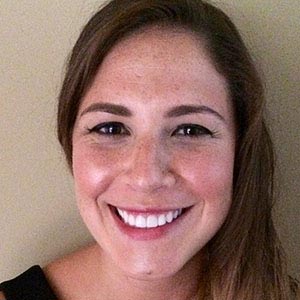
Emily Primack (US)
Emily is an Education Program Manager at a refugee agency in Israel. Her research has been used by ARDC, IRC, One to World and Learning Enterprises. Emily has a BA in International Affairs from GWU and an MA in International Education from Columbia University. Her focus is post conflict education with a concentration in technology-based learning. While Los Angeles is home for Emily and her extensive shoe collection, she lives a nomadic life working on distance learning applications for refugees.
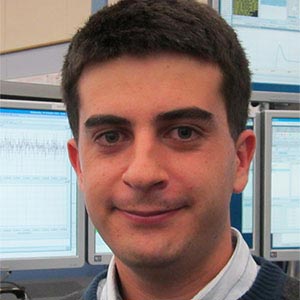
Gianluca Valentino (MT)
Originally from the sunny Mediterranean island of Malta, Gianluca Valentino read for a B.Sc. degree in communications and computer engineering at the University of Malta. He subsequently conducted his Ph.D. research at CERN from 2010 to 2013, automating the beam-based alignment procedure for the LHC collimators. Gianluca is now a Marie Curie post-doctoral fellow at CERN within the BE/ABP group, and develops software for the operation of the LHC collimators.
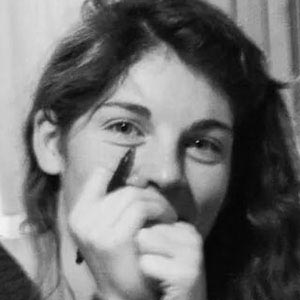
Megan Passey (UK)
Megan trained as an architect in the UK, studying in Newcastle and London. After work in traditional architectural practice, particularly in school design, Megan’s interest in the role of spatial design in development led her to Brazil and India to contribute to slum-upgrading projects. Following an MA in Development and Emergency Practice, Megan is now based in Geneva and works for the REACH Initiative, which provides information to inform humanitarian decision-making.
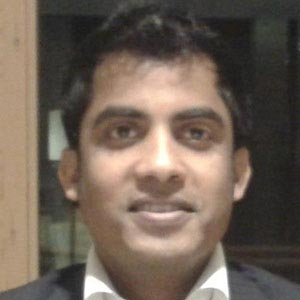
Mohammad Abdul Jabbar (BD)
Mohammad Abdul Jabbar was born at Dhaka, Bangladesh. He did his Bachelor in Electronics and Telecom. Engineering from Independent University,Bangladesh-IUB. He studied Masters in Wireless Networks and Electronics at Linkˆping University, Sweden. He participated at NASA Hackathon and was awarded ‘Galactic Problem-Solver’ certificate. He has six research publications including in IEEE Xplore. He is recipient of Erasmus Placement Scholarship at United Nations Development Program, Germany. However, he is passionate about Embedded System and Communication Engineering.
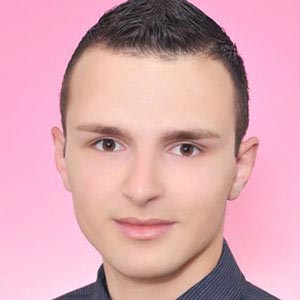
Vladimir Ilievski (MK)
Vladimir Ilievski was born in Veles, Macedonia in 1992. While his secondary education he attended mathematical competitions, in which he was awarded with bronze medal on Macedonian Mathematical Olympiad. Now he is in the last year of his undergraduate studies at the Faculty of Computer Science and Engineering in Skopje, Republic of Macedonia. He is set to graduate in mid 2015 and hope to pursue Masters. In the summer of 2014 he was part of the CERN summer student programme. During his studies he was continuously awarded each year as one of the students with the highest average grades. You can contact him on email address: ilievski.vladimir@live.com.
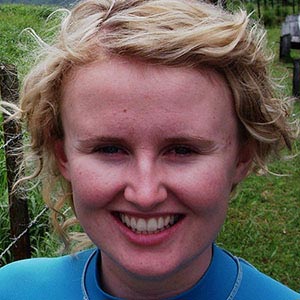
Cobi Smith (AU)
Cobi moved to Geneva from Australia to work on geotagx.org, working with UNOSAT/UNITAR based within CERN. She is a researcher and practitioner in science communication and an open activist. She was involved in the Ada Initiative’s first AdaCamp and have led projects combining hacking/cycling, maths/literature and science/comedy. She worked on human rights related projects ranging from sanitation maps to indigenous peoples’ media platforms.
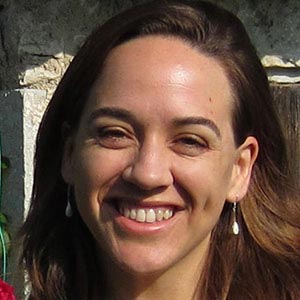
Kathryn Grimm (US)
Kathryn is a post-doctoral researcher at ATLAS for Lancaster University in the UK. She works on a Higgs boson search at ATLAS, and currently focus on statistical analysis. She also works on the reconstruction of primary collision vertices at ATLAS.
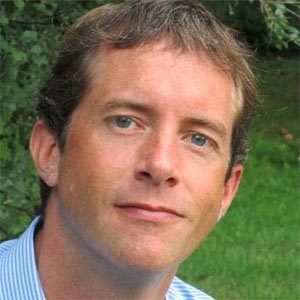
Lars Bromley (US)
Lars is the Principal Analyst and Research Adviser at the United Nations Institute for Training and Research / Operational Satellite Applications Program (UNITAR/UNOSAT), where he leads satellite imagery analysis for disaster response, humanitarian support, human security, and human rights investigations. He has more than 15 years experience analyzing satellite imagery and providing geospatial analysis to academic, non-government, and inter-governmental organizations. Occasionally he gets the chance to develop tools in Python for conflict assessment and data management.
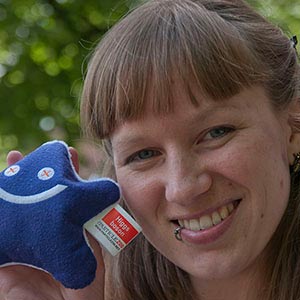
Lillian Smestad (NO)
Lillian is a particle physicist from Norway, with a PhD on the Higgs boson from the University of Oslo. The discovery of the Higgs boson being the basis for the 2013 Nobel Prize in Physics, she had the privilege of contributing to a scientific breakthrough. Currently, she is focussed on the mystery of dark matter as a postdoctoral researcher for the University of Bergen working at CERN. She loves learning and has an urge to connect worlds. Knowing things are rarely all what they first seem, her nature of scrutiny often takes her places she didn’t expect to go.
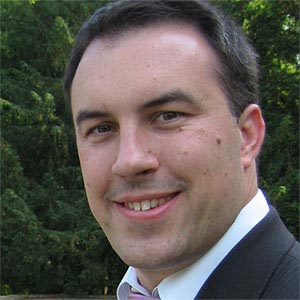
Yves Zieba (FR)
Yves Zieba is a cross functional and multicultural leader specialised in strategy / corporate venturing. He manages the MOOC/SPOC/DOCC Think Tank. Practicioner in open innovation and in universal design, he can help with creating disruptive business models. He sits on the advisory board of a social innovation incubator and trains business owners. He currently co-creates a co-working / fablab space in the Geneva region. Find his blog at yveszieba.me.
Team: Nostro
Coaches: Karolos Potamianos and Cecile Lapoire
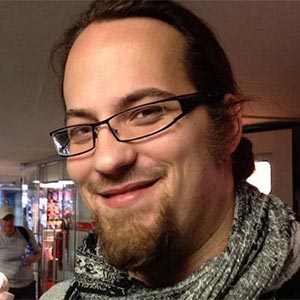
Charles Bušmanis (CH)
Charles Bušmanis is working at RTU to develop interdisciplinary learning projects.
He has expertise in product design, creative methodology & product development.
Mind the system, find the gap!
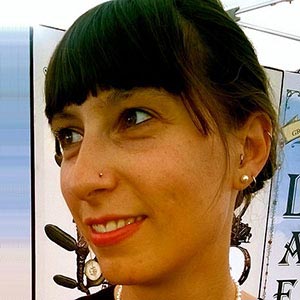
Cristina Olivotto (IT)
Cristina graduated in Physics at the University of Milan, and got a PhD in History of Physics in 2007. After graduation, she started to work in the field of science communication and education in formal and informal contexts, for national and international organizations. She has been an Educational Project Officer for the European Space Agency for four years before founding Sterrenlab in 2011. She thinks that science is a fundamental part of our culture, loves working with people from all over the world and her current professional interests focus on learning outdoor environments and geolearning.
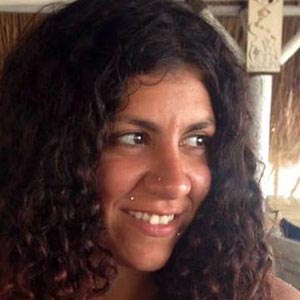
Gayane Azizyan (AM)
Gayane was born in 1986 in Soviet Armenia, and she spent her childhood in the wars and crisis following the collapse of the Soviet Union. She was homeschooled and received her high school diploma in 1998, then attended Dartmouth College (USA), for a year, studying mathematics and art. She received her Bachelor’s degree in Mathematics in Armenia in 2007, and her Master’s degree in IT in Stockholm, Sweden in 2010. For the past four years she has been working as a telecom engineer at Ericsson in Stockholm.
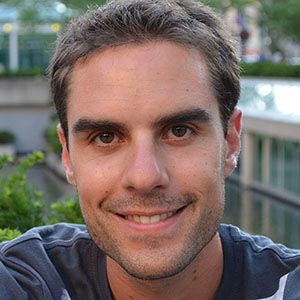
Javier Martín Montull (ES)
Javier is from Castellon, Spain, and studied Computer Science Engineering at Jaume I University. He first joined CERN in 2009 as a student in the IT department, returning in 2011 as a fellow for the Library group. In 2013, Javier obtained a staff position as Web Services Manager working for inspirehep.net, the largest global digital library for High Energy Physics, a role which involves both programming and management of a young team of developers. He has also participated in several start-up events and projects.
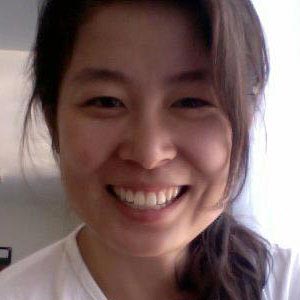
Jennifer Jin (US)
Jennifer began her career at Google in Silicon Valley, managing the development of Gmail, Google Calendar, and Google AdWords into international markets and local languages. In 2010, she worked as a Kiva Fellow with Kenyan microfinance institutions. Over the next two years, she re-opened Ashoka’s East Africa office and launched Youth Venture Nairobi, a program that encourages youth to use entrepreneurial thinking to solve problems in their communities. Most recently, Jennifer led business development for D-Rev, a San Francisco nonprofit designing medical devices for patients living on less than $4 a day.
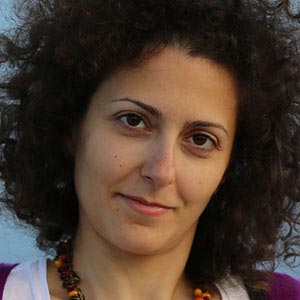
Miganoush Magarian (IR)
Miganoush Magarian studied Bachelor‘s degree in Software Engineering in Iran and Master’s degree in IT in Stockholm, Sweden. She worked as software designer in Ericsson. In 2012, she joined SAP Innovation Center in Germany where she gain hands-on experience in innovative prototyping, software development, and project/product management. In 2014, she co-created TeachSurfing.org – a free global network which connects people with knowledge-sharing opportunities in their home or travel destinations.
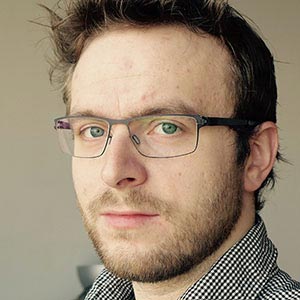
Oliver Keller (DE)
Oliver is finishing his M.Sc. degree in applied physics at the CERN Media Lab, where he explores new ways of displaying radioactivity by combining a hybrid pixel detector with a tablet. Born in Munich, he recieved an engineering diploma in 2008 and worked the following years as an R&D engineer crafting embedded system prototypes. He is passionate about open source and hardware as much as about music and design. Twitter: @0zelot.
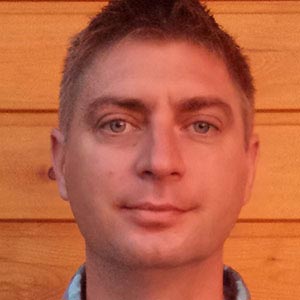
Frédéric Lalaz (FR)
Frédéric is from Nice where he completed his formative studies. A mathematician by profession, he is passionate about his subject and has travelled the world to train teachers and help them reach their full potential. In the last five years he has worked in schools in Malaysia and Indonesia. He is currently employed at the International School of Geneva where he has become a specialist in curriculum redesign and computer based learning. He is always on the lookout for new ideas and new technologies to implement in schools.
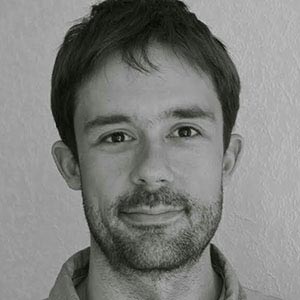
Geoffray Adde (FR)
Geoffray was born and raised in Paris. After a PhD in computer science on medical imaging techniques, he worked for five years in a major power company as a research engineer in statistical analysis for power production optimization. He was successively a technical expert and a project leader there. Today, he works at CERN as a software developer on a massive distributed storage system. He is interested in people, ideas, politics, sciences and inventions and he is keen on mixing those together.
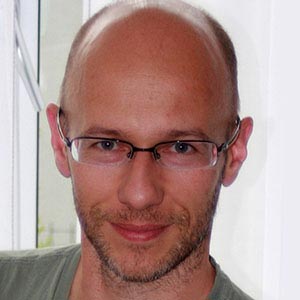
Iacopo Mochi (IT)
Iacopo is a physicist and an optical engineer. In his career he covered a wide portion of the EM spectrum, from infrared to x-rays. He got a PhD In Methods and Technologies for Environmental Monitoring with a thesis on LIDAR remote sensing of the sea. Afterwards he worked for three years on the development of an IR high-resolution spectrograph for the National Telescope Galileo. In the past six years he worked at Lawrence Berkeley Lab developing novel instrumentation for Extreme Ultra Violet lithography.
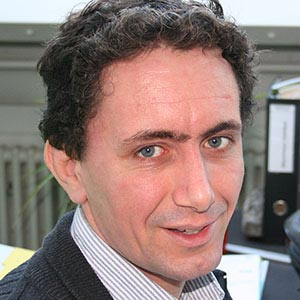
Simon Schneebeli (CH)
Originally Simon is a Civil Engineer. But eager to discover and learn new things, he added an MBA in Entrepreneurship and Business Development. Today, based in Lausanne, Switzerland he is developing a consulting firm where he helps start-ups and SMEs to help them to stay relevant in a rapidly changing market. Among other unconventional projects, Simon is founder of TEDxLausanne and was involved in the creation of the Impact Hub in Geneva.
Team: SmartDog
Coaches: Daniel Dobos and Andrey Loginov
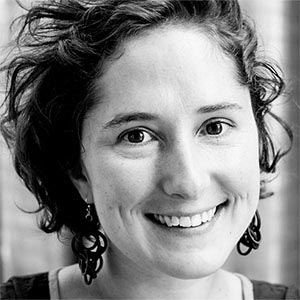
Adria C. Le Boeuf (US)
With a PhD in neuroscience and biophysics, Adria is using ant colonies to study emergent community-scale decision-making in social networks at the University of Lausanne. Adria also leads The Catalyst, a cross-disciplinary science-theatre collective that works to improve public speaking skills, broaden creative expression, and create new science-focused media. Adria is passionate about spreading the beauty of science and increasing critical thinking worldwide in any way possible.
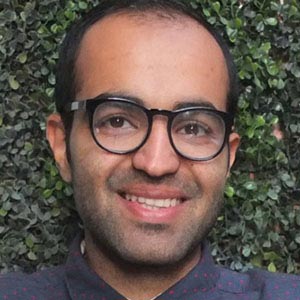
Amirhossein Imani (IR)
After getting his degree in mechanical engineering, Amir worked as a researcher on Energy Efficiency and renewables projects around the world. Later, he moved to the field of international development with the focus of inclusionary policy making and gender issues in the university of Edinburgh, UK. He is passionate about technology and advocates use of new media for sustainable and positive social change.
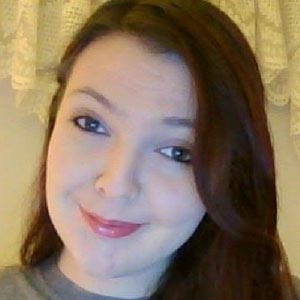
Courtney Thurston (US)
Courtney is a student, a systems engineer, and an advocate for project-based learning. She’s working to make technical fields more accessible to women and underserved groups through a number of partnerships with organizations such as Microsoft Research, the National Center for Women and Information Technology, and the International Telecommunications Union, while developing unmanned aerial systems in conjunction with NASA and the United States Navy.
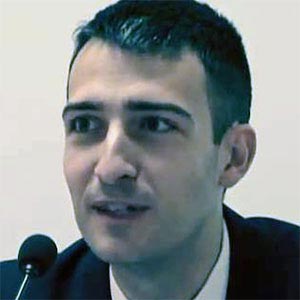
Drasko Draskovic (RS)
Dr Drasko Draskovic is currently working on the beam instrumentation for the High Luminosity program of the Large Hadron Collider at CERN in Geneva, Switzerland. Drasko received a PhD degree in Electronic Engineering in London in 2009. He taught undergraduate and graduate courses in wireless communications at the universities in London and Madrid. Drasko is passionate about technology as a creative force shaping global community and improving the state of the world.
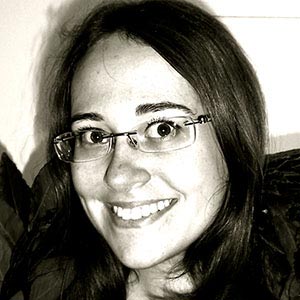
Luisa Meneghetti (IT)
Luisa has been working for several organizations in the human rights field. Currently, she is researching on the cutting-edge topic of internal displacement caused by disasters for the Internal Displacement Monitoring Centre based in Geneva, Switzerland. On the side, Luisa has also been involved with the Swiss startup GovFaces as head of development and outreach. She is an essentialist and a promoter of successful change under the motto “less but better”, a value that she wishes to bring to THE Port hackathon too.
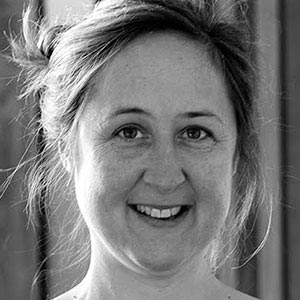
Michelle Lewis-King (UK)
Michelle Lewis-King is an artist, lecturer and PhD research fellow for the Cultures of the Digital Economy Research Institute, Anglia Ruskin University, UK. Michelle’s creative practice research investigates the cultural interfaces between art, medicine and technology. Michelle’s research is published in the Journal of Sonic Studies and Reflections on Process in Sound and her artistic work has also been exhibited at the V&A Museum, the Anatomy Museum at Kings College and Spike Island.
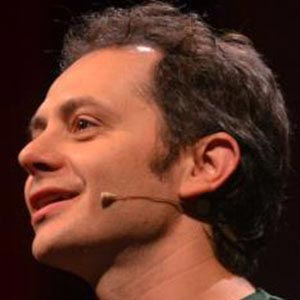
Theo Anagnostopoulos (GR)
Theo Anagnostopoulos is a science communicator and a social entrepreneur. He holds a PhD in Medical Genetics from Kings College London. He is the Co-Founder and Director of “SciCo”, a social enterprise whose aim is to communicate scientific issues to various stakeholder groups via innovative means. He is also the Founder and Curator of “Athens Science Festival”, “School Lab” an international online learning platform for science communication, “Health Forward” an interactive platform on innovation in health and “Green Project”, a NGO whose aim is to create environmental awareness via science and art. He is currently the President of the Onassis Scholars Association. He is the TEDxAthens and TEDxLimassol host presenter. Theo has travelled to over 70 countries. @TheoAnagno
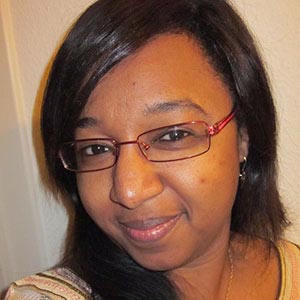
Aïssatou-Boussoura Garga (CM)
A project manager and a coach, Aïssatou also has a sound background in social research and advocacy for human rights. After her assignment as a civil servant specialising in social policies, she worked for organisations such as Amnesty International and Terre des Hommes Suisse. She holds Masters in Development Studies, and in Economic and Social History. Choosing to look beyond appearances, she believes that “another world is possible”, and each of us can make it happen.
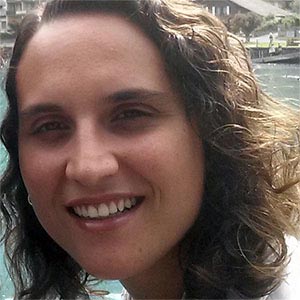
Andressa Sivolella (BR)
Andressa is a 25 years old Electric Engineer masters student from Rio de Janeiro. She owns a startup company back in Rio (TWIST Systems), which integrates data from heterogeneous sources. Andressa is currently working on a ATLAS/TileCal project at CERN as a Software Engineer. The platform integrates the collaborators analysis using web technologies. “My intention on participating on this event is the acquirement of new experiences and networking. Also, new challenges makes me think about other subjects that I’m not used to and it always pushes me to be in contact with innovations.”
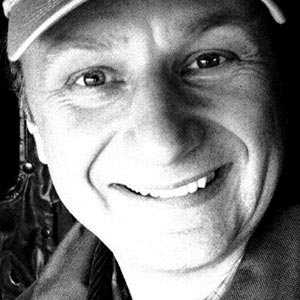
Erik Tollefsen (NO)
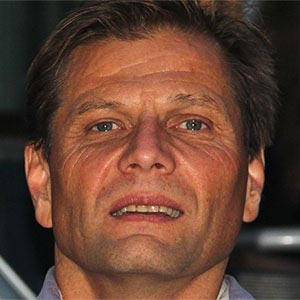
Håvard Bach (NO)
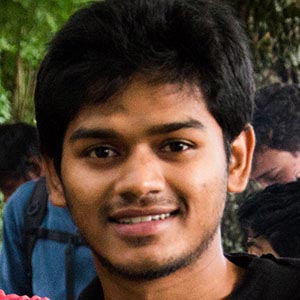
Sharada Prasanna Mohanty (IN)
SP Mohanty is a Grad student at IIIT-Hyderabad, an opensource enthusiast and a machine learning freak. Mohanty has been associated with Google Summer of Code for the past 3 years. He has previously worked with the ROOT team at CERN and is currently associated with CERN as a visiting scientist. He was the winner of the CERN Webfest in 2013 and the coordinator in 2014. He likes building cool stuff, taking awesome photographs, writing computer games, playing his old dusty guitar and composing silly songs.
Team: Kool & the Gang
Coaches: Hansdieter Schweiger and David Galbraith
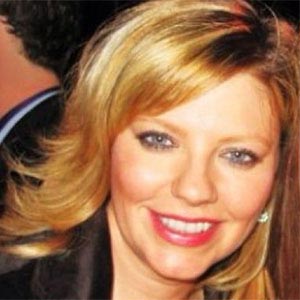
DJ Forza (US)
DJ Forza works in Innovative Finance at Gavi, The Vaccine Alliance. DJ’s team operates as an internal think tank to develop private sector partnerships that catalyse access to immunisation against vaccine-preventable diseases for children in the world’s poorest countries. Originally from Seattle, DJ holds an MBA from the University of Washington, and served as a Kiva Fellow in Tbilisi, Georgia, where she worked to develop microfinance products for the entrepreneurial poor.
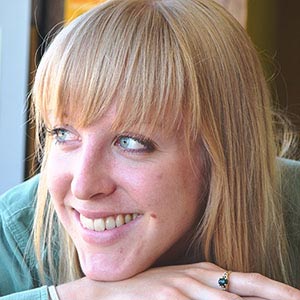
Jessica Bennett (UK)
Jessica is a British Canadian of confused nationality due to a nomadic upbringing. She obtained her MA in Natural Sciences from the University of Cambridge, specializing in pathology. In 2010, Jessica moved to Geneva and started working for FIND, an international organization that aims to improve access to high quality, affordable diagnostic tools. In her current role, she is responsible for the grant, budget and project management of a PEPFAR-funded CDC Cooperative Agreement that focuses on laboratory system strengthening and roll-out of WHO-approved diagnostics in multiple countries.
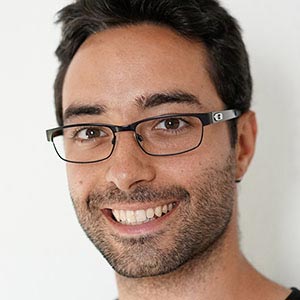
João Bárcia (PT)
João Bárcia is a 27 years old guy from Lisbon (Portugal) who studied to be a Physics Engineer and ended up working as a Media Designer. For the past three years he has been at CERN where he co-founded the CERN Media Lab. The goal of this group is to explore innovative interactive technologies for Education and Outreach. He’s been working as lead hardware expert, researching and developing creative solutions for visit points as well as providing consultancy for various departments in CERN.
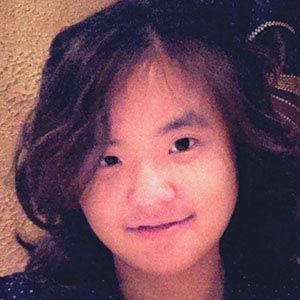
Kitty Liao (TW)
Kitty has a background in physics and electronic engineering. She’s fascinated with building things and prototyping. From 2010 to 13, She worked at CERN as a fellow on superconducting cavity diagnostics for future colliders which form part of the upgrade of the LHC injector chain. Kitty designed and developed an ‘Octopus temperature mapping system’ and was invited to talk about it at CERN’s BE-KS first Innovation Day. In her free time, she enjoys designing and making her own dresses, traveling, cooking, skiing and swimming.
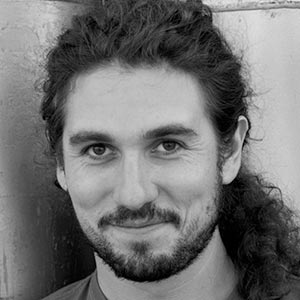
Ricardo Páramo (ES)
Ricardo Páramo is a creative head from Burgos, in north Spain. His work experience goes from the auto industry to model making, furniture-, toy- or cookingtools- design, playground building or art foundry, as well as graphic design. He mixes his technical knowledge and handicraft skills with a creative point of view. In 2012 he established his own design studio in the city of Basel, Switzerland. www.ricardoparamo.com
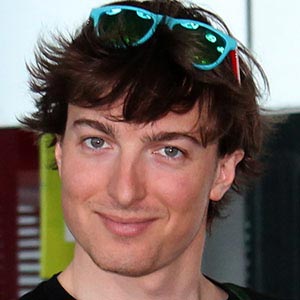
Romain Bazile (FR)
Building engineer by training, but passionate about subjects such as electronics, design, astronomy, science and many more, Romain Bazile has multiple hats to play with. Since his involvement in the Team Rhone Alpes with their house Canopea during the Solar Decathlon Europe 2012 (which the team won), he believes in learning by doing and try to tackle every challenge he finds on his path. In his eyes, only multidisciplinary teams can nowadays solve the biggest problems we face on our planet.
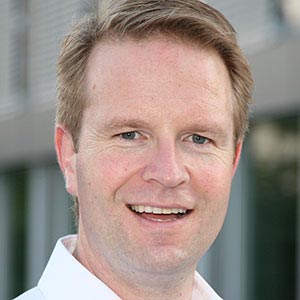
Steffen Raetzer (DE)
Steffen is an engineer and entrepreneur. Initially, he worked in a corporate environment in the areas of business management, marketing and strategy. In 2010, Steffen cofounded a company which implements a better way to produce electricity using decentralized power generation and biogas as renewable energy source. Steffen is passionate about creating and implement innovative and sustainable business solutions that better use the planets resources and promote good corporate citizenship.
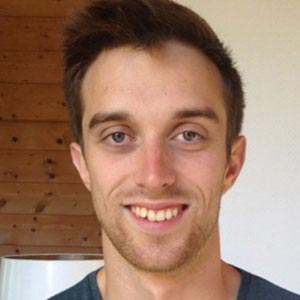
Charlie Cook (UK)
Charlie holds a Masters in Civil Engineering and has a passion for social enterprise and clean technology. He has just begun a two year fellowship with CERN as part of the civil engineering team investigating the feasibility of the Future Circular Collider – a possible 80km long successor of the LHC. Charlie is motivated by the idea of solving tricky problems faced by society and looks forward to meeting similarly motivated individuals at THE Port. His Twitter account is @CharlieOnEnergy
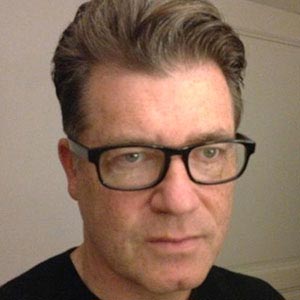
David Galbraith (UK)
An Architect (working for Norman Foster) turned Internet Entrepreneur, Co-founder of San Francisco Incubator, MRL Ventures (where he lead the project which became Yelp), Moreover.com, the first news aggregator (acquired by Verisign) and Realtime Anywhere (the first Internet company in London’s Shoreditch, in 1994). David created the visual bookmarking concept behind Pinterest and co-authored the widely used RSS standard.
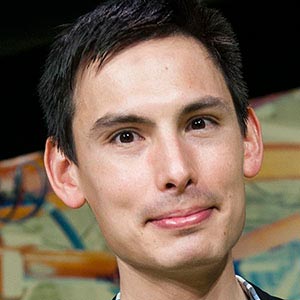
Jonathan Moy de Vitry (CH)
A science enthusiast, Jonathan finished his B.Sc. in Business Administration before discovering his passion for the commercial side of technology through a M.Sc. in Innovation and Industrial Management at Gothenburg University where he wrote his thesis on the Norwegian salmon industry. Nowadays, Jonathan is interning with a project developing microfinanced solar kits at Antenna Technologies, a Swiss non-profit dedicated to improving the lives of those at the bottom of the pyramid.
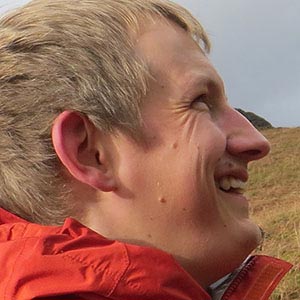
Tim Head (UK)
Tim works at CERN, doing science with data. Also: python, statistics and triathlons. Tim works on the LHCb experiment. Here he works on the design of the future detector, pattern recognition software as well as the software trigger (deciding in real time what data gets recorded). He has experience as a software engineer, leading teams of experts in different fields, statistics and all the things you associate with a “scientific approach” to solving complex problems. He is a big fan of building a minimally viable solution to problem and then iterating on it. In his spare time he likes to train for and compete in triathlons.
Team: Muons
The PierX1 topic will be organized and run by the CERN Robotics club and will be supported by THE Port association.
Coach: James Devine
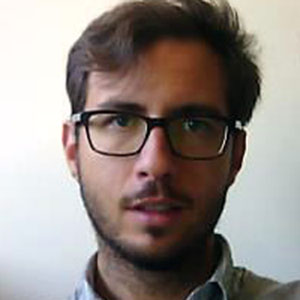
Cosimo Cantini (IT)
Cosimo Cantini is an Electronic Engineer currently working at ETH. He works for a Dark Matter experiment (ArDM) and WA105 a newly CERN experiment for Neutrino Physics. He is keen about particles detection techniques and generally technology. He loves sport, nature and music.
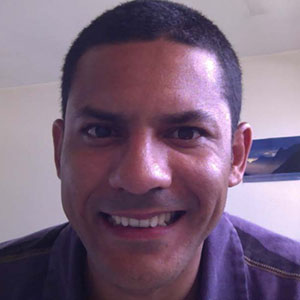
Etam Noah (UK)
Etam is a researcher at the University of Geneva working on neutrino detectors. He has a general interest in anything to do with particles interacting with matter. He worked on the design and commissioning of the CMS tracker. He is keen to bring bits of giant detectors to a wider audience, especially detector prototypes with educational value. When possible, he plays volleyball, surely the coolest sport on grass, sand or indoors.
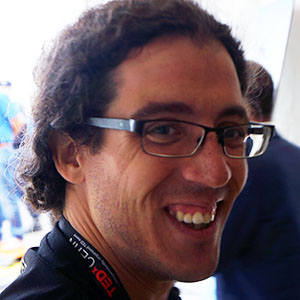
Hugo Day (UK)
Hugo is a applied physicist at CERN, working on fast pulsed electromagnets. He enjoys hanging from/on top of rocks, finding ways to make people think differently (or indeed at all) about science and technology, playing games and bodging things together.
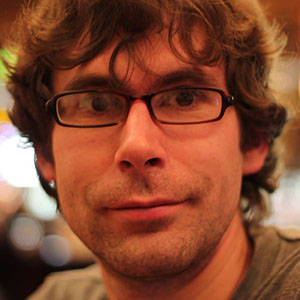
James Devine (UK)
James Devine is an Electrical Engineer currently working at CERN. He likes to make cool things and has experience in launching balloons to the edge of space and building robotic arms based on Arduino. He has professional experience designing electrical systems for scientific experiments, data centres, schools and laboratories. In his spare time he likes to programme and prototype software in Processing and Python.
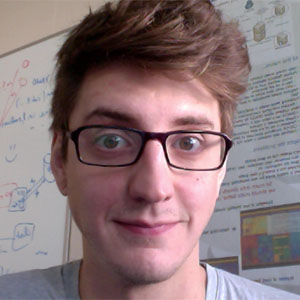
Justin Salmon (UK)
Justin is a computer scientist currently at CERN. He has previously worked there on massive distributed storage systems for LHC physics experiments, and now works as a Fellow developing high-availability monitoring applications for technical infrastructure. He loves hacking in Python and is an open source enthusiast.
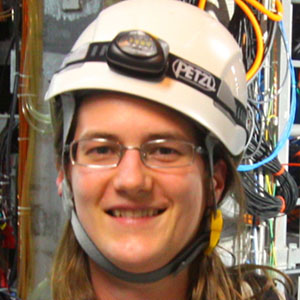
Laurel Coffey (US)
Laurel Coffey is a physics PhD student at Brandeis University currently working on ATLAS. She has done searches for a lepton flavor violating particle, worked on the optical alignment system of the Muon Spectrometer, and worked in microscopy at the Columbia University Cancer Center. She hikes the mountains in all seasons and weather conditions, travels and takes photos.
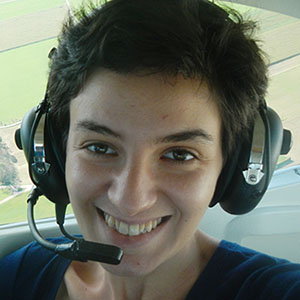
Leïla Haegel (FR)
Leïla Haegel is a PhD student in neutrino physics at the University of Geneva. She settled near CERN after studying and getting research experience in material, particle accelerator and black hole physics between France, Ireland and Spain. The hackaton is her new challenge after learning diving and enjoying her first flight.
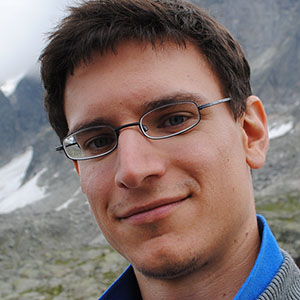
Martin Hellmich (DE)
Martin is a computer scientists currently working at CERN on large-scale distributed storage systems. He recently fell in love with the Raspberry Pi and cannot start a project without involving one. He has experience building efficient systems in C++ and Python.
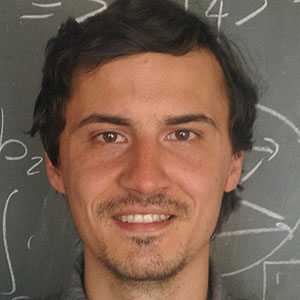
Ruslan Asfandiyarov (RU)
Ruslan is a researcher at University of Geneva with wide experience in particle physics. He contributed to the discovery of the Higgs Boson when he worked in ATLAS Collaboration at CERN. And he constructed a detector for a muon accelerator project during his PhD. He is now working on cosmic ray detector to be launched into space to look for dark matter.
Our team 2014
Without the enthusiastic voluntary work of our Organizing Team, Advisory Board and Executive Committee we could not work professionally – a big Thank You and it is fantastic to work with you.
Executive committee 2014
-

Ines Knäpper
President
Project Manager with strong background in Intercultural Management, Sales and Customer Service.
-

Cecile Lapoire
Treasurer
CERNPhysicist working on the ATLAS pixel detector, curious about art, human beings, life, universe, etc.
-

Michael Kagan
Secretary
SLACExpert in large-scale data analysis, pattern recognition, and ATLAS pixel detector quality assurance.
Organizing team 2014
-
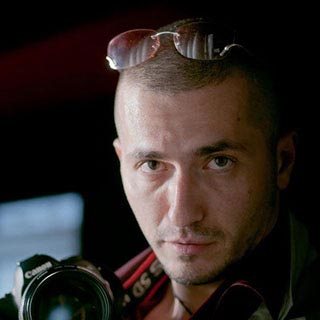
Andrey Loginov
Member
YalePhysicist working on Transition Radiation Tracker and top(-pair) + Higgs data analyses.
-
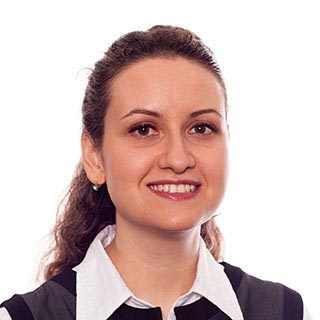
Bilge Demirköz
Member
METUAssociate Professor at METU working on the AMS-02 experiment.
-
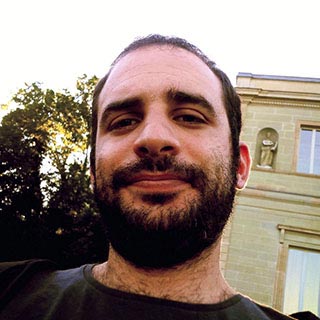
Bruno Silva De Sousa
Member
CERNIT engineer, service manager at CERN.
-
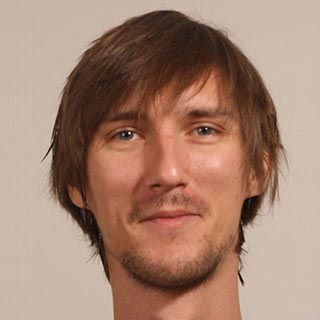
Clement Helsens
Member
CERNPhysicist still searching for new physics in the top-quark sector in the ATLAS experiment.
-
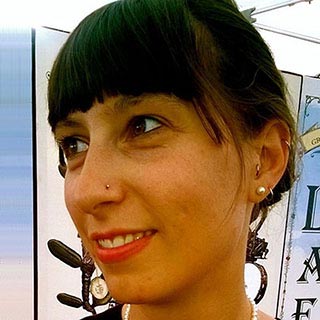
Cristina Olivotto
Member
sterrenLABFounder of Sterrenlab, working in the field of science communication and education in formal and informal environments.
-

Daniel Dobos
Founding Member
CERNPhysicist working on Silicon & Diamond detectors development, integration and operation.
-
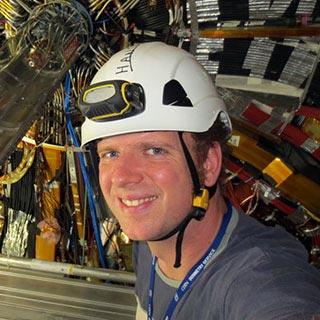
Hansdieter Schweiger
Member
CERNMechanical Engineer working on Pixel detector and services upgrade for the ATLAS experiment.
-

Iulia Pascu
Member
CERNProject Manager, event organiser at CERN.
-

Jens Dopke
Founding Member
RALPhysicist working on silicon detector construction, calibration and operation, big fan of electronics.
-

Juliet Primo
Member
Project consultant, communication and outreach.
-

Joona Kurikka
Founding Member
Aalto UniversityDoctoral student, Cooperation Associate at IdeaSquare@CERN.
-
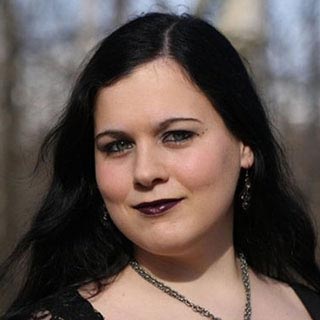
Karola Dette
Member
CERNDoctoral student working on silicon sensor upgrade developments for the ATLAS experiment.
-

Karolos Potamianos
Founding Member
Berkeley LabPhysicist and engineer working on silicon detectors, currently on the data acquisition for the ATLAS Pixel Detector, and data analysis.
-
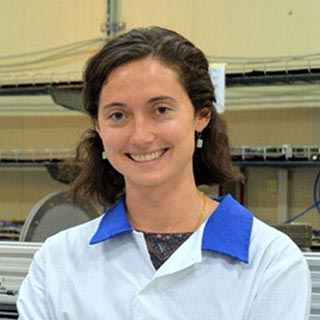
Laura Jeanty
Founding Member
Berkeley LabPhysicist working on data acquisition for the ATLAS Pixel detector with expertise in detector monitoring and data analysis.
-

Michael Leyton
Founding Member
UTD -
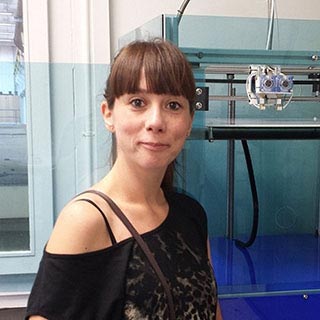
Patricia Montalvo
Member
I work as administrative manager. I love the idea of improving the life of those less favoured by using technology.
-

Pierre Freyermuth
Member
CERNAuthentic Proton-breeder, Electronic technician and Java developer.
-

Ruben Fernandez Morcillo
Founding Member
CERNMechanical technician with knowledge in rapid prototyping machinery. Currently working as safety officer.
-
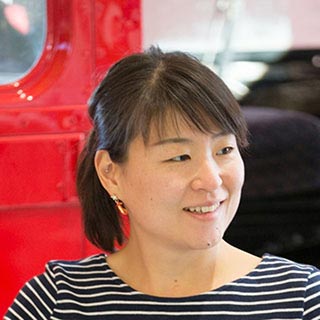
Tomoko Muranaka
Member
CERNPhysicist working on material characterisations for future accelerator developments.
-
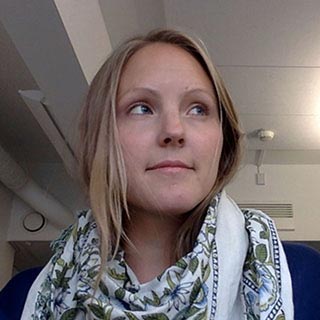
Tuuli Utriainen
Founding Member
Aalto UniversityPiloting activities at IdeaSquare@CERN.
Advisory board 2014
Ariane Koek • CERN • Director and creator of Arts@CERN programmes
Barbara Warmbein • DESY • Linear Collider communication and LHC communication for Germany
Ben Segal • Honorary CERN-IT staff member • Citizen Web Science projects, seminars and hackfests within and outside CERN
Cornelius Bubenzer Skyguide • Digital Media & Publications Manager
David Galbraith • Tech entrepreneur, former architect, now designer of digital things – including RSS, Yelp, ‘pinning’
Neal Hartman • Berkeley Lab • Director and President at CinéGlobe Film Festival
Robin M. Coupland • ICRC • Field Surgeon and Medical Adviser
Sara Sekkenes • United Nations Development Programme • Adviser, Conflict Prevention and Recovery









